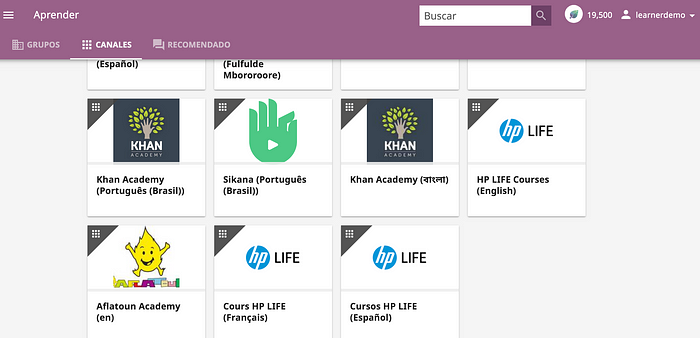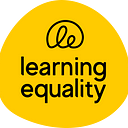Why Translations Matter
On this International Translation Day, we highlight Learning Equality's internationalization efforts in order to make educational opportunities truly inclusive, accessible and exciting for all.

Whenever we show Kolibri to users for the first time in the spaces where they learn, smiles appear on faces and heads nod in recognition of something familiar when they see the platform and/or content in their own language. Take Victor, for example, a 5th-grader from Honduras, pictured left using Kolibri in Spanish, his native language, during his Math class. His face says it all.
By having the platform translated, especially with right-to-left support, Learning Equality is demonstrating a true commitment to creating an educational tool that is accessible to all. While we work to build the Kolibri Content Library to include materials in a diversity of languages, especially minority languages, having a translated platform in parallel in a broader set of languages which our users speak is a reflection of that commitment to support learners wherever they are.
How Kolibri is Translated
Kolibri is primarily designed for learners and educators in the K-12 space but has broad applications for early and adult learners, as well as in contexts outside of formal schools. With the support of organizations like Translators Without Borders, Natakallam, and Crowdin, the Kolibri platform is translated to support the work of our key collaborators. We also have an amazing community of translators who dedicate their time to make Kolibri available in a variety of languages to support our grassroots users more broadly.
The Future of Kolibri, the Polyglot
Our vision for Kolibri is to make the platform available in every language of the world (or at least every language for every content source we have in the platform)!
While we’re early in our journey to achieve this vision, with the help of our partners and community of translators, we have made Kolibri speak 19 languages, and counting…

Because translation is influenced by requests from our partners, by our content library, and what we perceive as helpful when we conduct site visits, we’re currently focused on At primary languages spoken in Latin America, South Asia, sub-Saharan Africa, and the MENA region.
At every opportunity we have to visit our implementations, we attend to translations as part of our user testing. We take our commitment to making sure Kolibri is a true polyglot very seriously and passionately.
The Kolibri Content Library currently contains STEM, life skills, literacy, and teacher professional development learning materials in a variety of languages, including Arabic, Swahili, French, Spanish, Hindi, Tamil, Kannada, and Bengali, to name a few. These include videos and exercises from Khan Academy, learning games from PraDigi, for example. You can see a subset of the Kolibri Content Library on our demo site.

Making #KolibriFly in Local Languages
We see Kolibri as able to support the increased availability of local language content in a few different ways: for one, our content scouting process is responsive to implementation needs, so we’re able to seek and integrate recommendations and suggestions for local content. Since we also encourage users to import and remix their existing materials, they’re able to contribute to the Library’s reach and scope. Ultimately, we also hope that using local content libraries in conjunction with the platform’s feature suite, particularly tools which relate to progress tracking and differentiated lessons, will help leaders in those settings expand the versatility of their materials to new classrooms and settings, and even gather data on how it is being used for their own operations or to present to their ecosystem of stakeholders. We’re optimistic that demonstrating how local-language content works well with ICT-based education interventions can help revitalize investment in it.
On that note, we’re working with UNHCR to increase the availability of content in Arabic, having recognized that relevant, digital Arabic content for K-12 Arabic speaking learners is often not aggregated and made accessible in a way that is useful to learners, and that such materials are still lacking in needed subject areas and age levels.

In collaboration with UNHCR supported by Google.org, we’re working with content creators to fill much-needed gaps in openly available digital Arabic-language content for STEM, life skills and literacy. One example of such work is the Global Digital Library (GDL). We’re also working to align existing and new materials to the Jordan national curriculum at the lower secondary level.
For us at Learning Equality, Kolibri is not just a technological intervention, but part of a systematic organizational effort to break down barriers in making educational content usable to everyone, which includes language inclusivity. And that is why translations matter.
Learning Equality would like to thank its incredible community of volunteer translators who dedicate their time at every new version release to make Kolibri a true polyglot. Happy International Translation Day, guys!
And if you too speak more than one language and want to help us make #KolibriFly in your local language, here's how.

